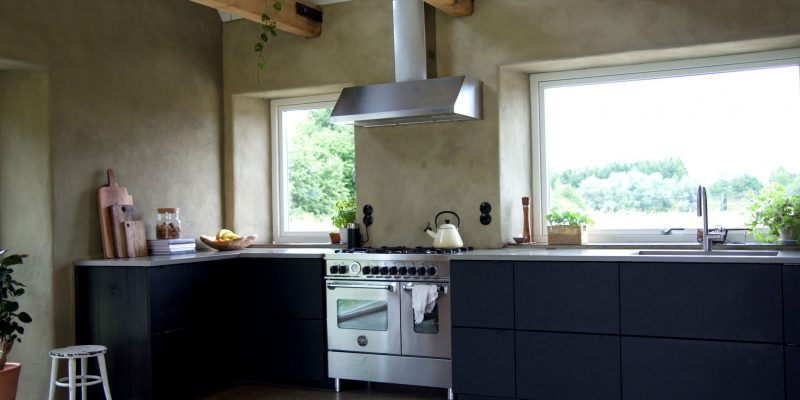When you finally decide to live sustainably, you might get a little lost as to where to start. Almost all the items that we’re using today are harmful to the environment and choosing which one to quit and which one to keep can leave you confused. But worry not, we’re here to help with that.
We suggest that you start from your kitchen not because it is THE most environmentally harming place but because this is where it’s easy to start.
Let’s see how you can start your sustainable living by making your kitchen environment friendly:
1. Recycle Whatever You Can
Probably one of the basic steps to conserving the environment is by making smart choices and reusing whatever you can. Repurpose containers to store spices and pasta. Reuse mesh vegetables bags instead of getting plastic bags at the grocery stores. Make lamps out of household items. If the floor has a small dent, replace the tile instead of installing a whole new floor. Recycle and waterproof the kitchen cabinets so that you don’t have to repair those again and again. These small investments will go a long way and save you a lot of money
2. Ditch Plastic Containers For Glass
Glass is more environment friendly as it does not contain any harmful chemicals. Glass containers are more expensive than plastic containers but they tend to last longer. Matter of fact, glass is endlessly recyclable and back to its original use. It never drops its purity and quality, no matter how many times it is recycled.
3. Switch Bulbs To LED
LED lights tend to get a good reputation from environmentalists. You can save a lot more energy by using LED lights. LED light uses 20 percent of the energy of a standard bulb, they last about 25 percent longer and they cost much less to operate, saving your money on electric bills. They can work safely in cooler temperatures, and can withstand more impact and vibration than other light bulbs
4. Upgrade To Energy Efficient Appliances
Nowadays manufacturers have realized the importance of energy efficient appliances. Therefore, while upgrading your kitchen, choose appliances wisely. Go for energy efficient smart appliances. Smart kitchens intend to make daily life easier by increasing the comfort level. Smart technology improves the efficiency and effectiveness of work. For example ovens that cook faster, choppers that chop efficiently, refrigerators, Microwaves, dishwashers etc.
5. Improve Air Quality
Never underestimate the transformation a well ventilation done in a kitchen can make. There are various positive medical advantages related with kitchens designed to maximize ventilation, so consistently think about the situation of windows when laying out your stylish new feasible kitchen.
6. Grow Herbs
It is an environment friendly approach to place plants and herbs in your kitchen. It adds a fresh and greener feel to your kitchen. Place indoor plant hangers
on the windows sills so that they can absorb light. But if you do not have a window in your kitchen, many plants like cactus and aloe vera tolerate low light conditions and are easy to handle. Plants help in reducing indoor air pollutants and purify the air.
7. Energy And Water Efficiency
You can optimize the energy efficiency by placing windows for natural light. Make sure you get appliances with the highest energy and water performance ratings in order to save energy and use water wisely. Smart products are characterized by maximum efficiency and low resource consumption. Now that people are more interested in eco-friendly products, companies are constantly improving technology. Clean your kitchen with eco-friendly products.
All these practices will help you in achieving a healthier and environment friendly lifestyle which will improve your lifestyle and your kitchen as well! We hope that our suggestions for an eco-friendly kitchen will help you improve your quality of life, reduce your carbon footprint and save money!










Comments